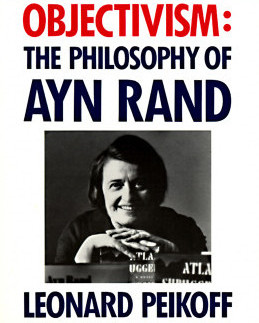The moral justification of capitalism is not that it serves the public. Capitalism does achieve the “public good” (appropriately defined), but this is an effect, not a cause; it is a secondary consequence, not an evaluative primary. The justification of capitalism is that it is the system which implements a scientific code of morality; i.e., which recognizes man’s metaphysical nature and needs; i.e., which is based on reason and reality. A secondary consequence of such a system is that any group who lives under it and acts properly has to benefit.
The distinction between primary and secondary — in other words, one’s hierarchy of values — is critical here, as it is throughout the realm of evaluation. A simple example is furnished by a man swimming in a lake. If reaching a distant shore is his evaluative primary and swimming is merely a means to it, the man will husband his energy, take periodic rests, move in a straight line, keep his body as tranquil as he can; he will do what he must to reach his goal, but no more — especially if he is a reluctant swimmer, who generally shuns the activity. But if he is primarily interested in the swimming, if his motive, say, is aerobic exercise and reaching the shore is merely a result (albeit an imperative one), he will go out of his way, other things equal, to expend energy, avoid rests, swim in zigzag fashion, make his heart pound fiercely. One’s priorities make a difference; they may drastically affect one’s behavior even in regard to enacting the same causal sequence. Assuming that there is any room in which to maneuver, one’s primary value in a given context is the thing one will focus on, emphasize, lionize.
From Adam Smith to the present, the value standard upheld by capitalism’s champions has been the “public good.” Individual freedom has been defended either as an ethically neutral means to this end (a common Enlightenment attitude) or, after Kant, as a necessary evil. Capitalism’s virtue, in this interpretation, is that it converts the amorality of “prudence” or the wickedness of greed into the nobility of social work. Men who hold this viewpoint, like the reluctant swimmer, are impelled to minimize one aspect of the causal sequence they uphold here and to emphasize the other. They minimize the individualist cause and emphasize the social effect, which, to them, is the moral primary. Thus they find themselves drawn irresistibly to compromise, cutting back one step at a time on the element they regard as neutral or worse, allowing “some controls” and then more and still more…
